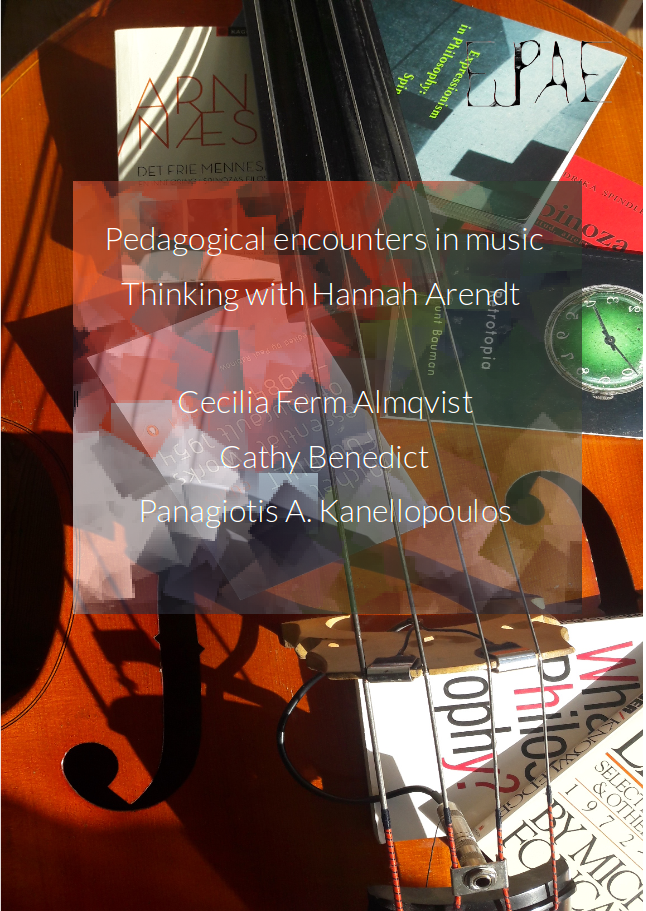Pedagogical encounters in music
Thinking with Hannah Arendt
DOI:
https://doi.org/10.5281/zenodo.3384931Keywords:
Hannah Arendt, philosophy of music education, common sense, action, seminar model, free improvisation pedagogy, music teacher trainingAbstract
This paper employs aspects of Hannah Arendt’s thought to explore different but interrelated questions that haunt contemporary music education. We see the importance of a return to Arendt now more than ever as we find ourselves, three authors in three different countries, trying to contribute to democratic music education practices and to researching the conceptual base of such practices, in countries where technocratic approaches to policy development prevail. More specifically in this article we address the following questions: how can we re-think the political and creative dimensions of music education pedagogies in the face of recent educational policy trends? How can we go beyond linearity in our everyday educational encounters? How can we create forms of music education practice and research that induce a continuous interplay between acting and thinking? We pursue these questions through reference to three specific forms of music education practice: research seminars for PhD-students and senior researchers, pre-service music teacher education, and teaching music improvisation. In the first part of the paper, Cecilia Ferm-Almqvist elaborates upon how Hannah Arendt’s thinking influences our teaching, taking an on-going research seminar in music education as an example of a common place. In the second part, Cathy Benedict writes of ‘meeting’ Arendt and coming to an awareness of how Arendt can help us interrogate practices we have come to assume as ‘the right ones’. Seeking to create together with her students an epistemological space of appearance she challenges common teaching strategies that seem to ‘work’. Working within a teacher preparation program she comes to realize that students must also reflect on these moments so as to name what has occurred; thus they need to engage in acts of performative listening, setting aside their own desire and need to speak and be heard first. Finally, in the third part, Panagiotis (Panos) A. Kanellopoulos raises the complex issue of how we should respond to the current deluge of entrepreneurial approaches to creativity, its use value, and its role in education. Based on the proposition that acts of musical improvisation belong to the realm of action, Kanellopoulos revisits Arendt’s notion of conservatism with the aim of outlining a possible way through which contemporary improvisation pedagogy might be re-thought. Taken together these three sets of reflections serve to offer a framing of Arendt’s thinking for music educators in different contexts, showing how Arendt's ideas might serve as a fertile ground for thinking over our own teaching, our curricular decisions, and the choices we daily make over space and time that connect us through our distinctness.

Downloads
Published
Issue
Section
License
EJPAE provides immediate open access to all its published content. Users do not need to register or pay to read content.
https://creativecommons.org/licenses/by/4.0/
Authors of content published in European Journal of Philosophy in Arts Education (EJPAE) retain the copyright to their works. Content is free to be used by anyone as long as you "[...] give appropriate credit, provide a link to the license, and indicate if changes were made. You may do so in any reasonable manner, but not in any way that suggests the licensor endorses you or your use." and "No additional restrictions — You may not apply legal terms or technological measures that legally restrict others from doing anything the license permits." (from the Creative Commons licence agreement)
EJPAE does not charge any author or publication fees.
Authors are encouraged to deposit the final published version of their article for self-archiving (author's personal website) and/or archiving in an institutional repository immediately upon publication.




